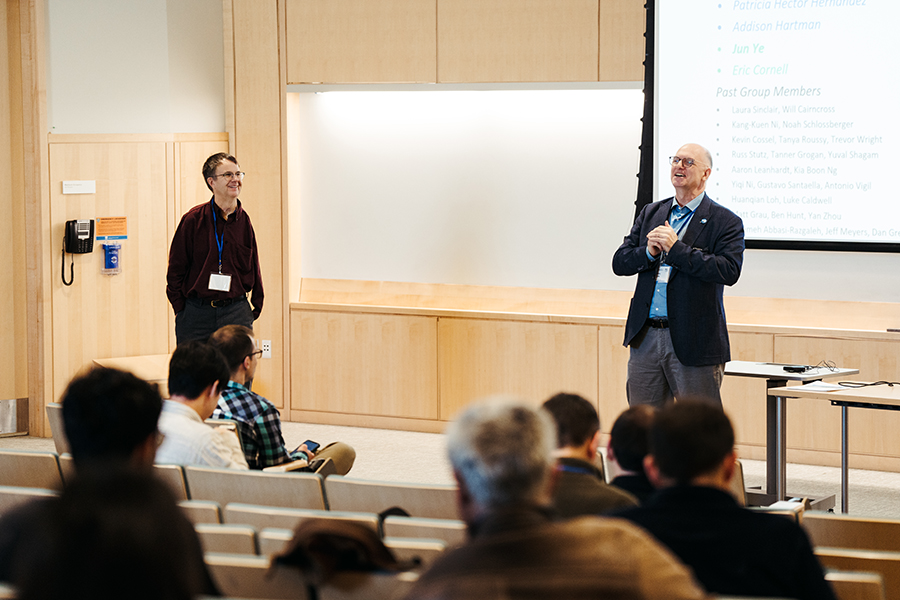- Home
- News
- Recent News
- International QIS Workshop Brings Together Physics Experts
International Quantum Information Science Workshop Brings Together Over 60 Physics Experts for Cross-Disciplinary Collaboration
Researchers from the nuclear physics (NP), atomic, molecular, and optical (AMO) physics, and quantum information science and engineering (QISE) communities came together at UMass Boston for a three-day Quantum Information Science (QIS) Workshop in January.

The first international workshop of its kind to explore the overlap in QIS between NP and AMO physics was organized through UMass Boston's new Data and Quantum Science Center ("DataQS Center") by Physics Professors Robin Côté of UMass Boston and Kyungseon Joo of UConn.
The event convened researchers from three fields that usually do not have common meetings. The unique opportunity enabled attendees to share their approaches with each other, and to identify and discuss fundamental questions and experimental applications in each field that could help and benefit the others in their work.
Participants represented more than 30 institutions within the USA and abroad and included a number of leaders from academic institutions and national laboratories such as Lawrence Berkeley, Argonne, and Pacific Northwest. Attendees’ areas of expertise covered a range of topics including theoretical and experimental nuclear physics, cold atoms arrays, trapped ions, superconducting materials, material science, chemistry, quantum devices, quantum information theory (algorithms), radiation, and exotic nuclear matter.
One of the workshop highlights was a talk from the 2001 Nobel Laureate in Physics, Professor Eric Cornell from the University of Colorado Boulder. Cornell discussed building experiments to measure fundamental interactions and how detecting them will impact NP, AMO, and QISE. He also addressed his current focus on measuring if there is an electron dipole moment (edm), and how his team is working on “simple and elegant” solutions to very difficult technical problems, accounting for any small perturbation from the surroundings and systematic uncertainties from the equipment itself.
“Bringing a diverse community of experts together like this is essential for identifying and prioritizing key research avenues and issues that will advance the field and that funding agencies might want to consider. Some of these are fundamental theoretical questions, such as how to compute the exact properties of nucleus from first principle or predict how still undetected dark matter could be seen using QIS tools like entanglement. Other topics are related to applications impacting the development of quantum devices and computers, like the effect of cosmic rays and radioactive decay all around us on fragile quantum bits (qubits) making up quantum circuits and ways to mitigate the impact for large scale quantum computers,” explained Côté.
Funding for the event was provided by a $25,000 grant from the U.S. Department of Energy to Professors Côté and Joo and a generous $13,300 gift to UMass Boston’s DataQS Center from the US-Korean Quantum Technology Cooperation Center.
The QIS Workshop is an example of UMass Boston’s growth trajectory in QISE that has also included the creation of the new DataQS Center, receiving a $5 million National Science Foundation ExpandQISE award, and the success of the Quantum Hardware Development & Commercialization Core Facility.
